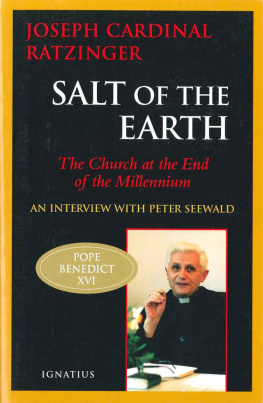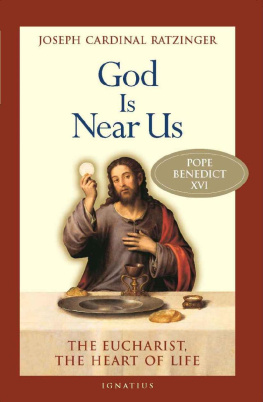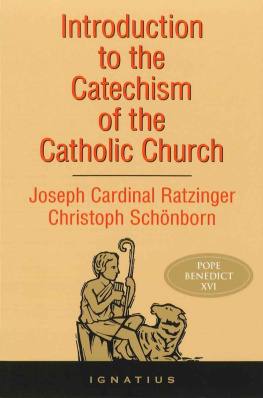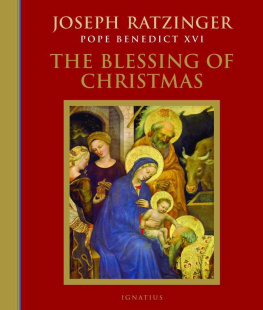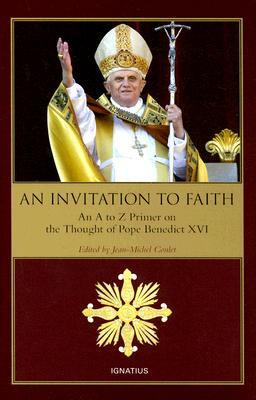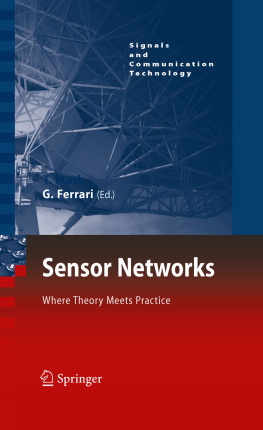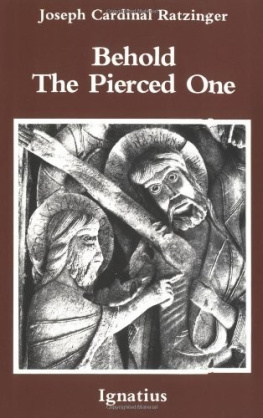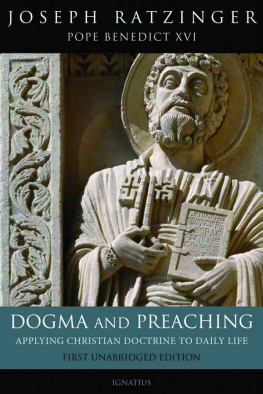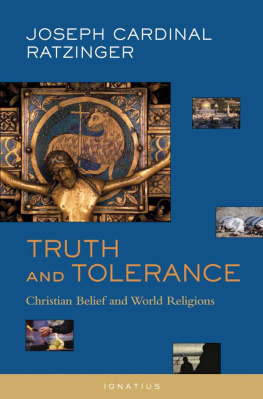Gianluigi Nuzzi - Ratzinger was afraid (Adagio)
Here you can read online Gianluigi Nuzzi - Ratzinger was afraid (Adagio) full text of the book (entire story) in english for free. Download pdf and epub, get meaning, cover and reviews about this ebook. year: 2013, publisher: Casaleggio Associati, genre: Detective and thriller. Description of the work, (preface) as well as reviews are available. Best literature library LitArk.com created for fans of good reading and offers a wide selection of genres:
Romance novel
Science fiction
Adventure
Detective
Science
History
Home and family
Prose
Art
Politics
Computer
Non-fiction
Religion
Business
Children
Humor
Choose a favorite category and find really read worthwhile books. Enjoy immersion in the world of imagination, feel the emotions of the characters or learn something new for yourself, make an fascinating discovery.

- Book:Ratzinger was afraid (Adagio)
- Author:
- Publisher:Casaleggio Associati
- Genre:
- Year:2013
- Rating:5 / 5
- Favourites:Add to favourites
- Your mark:
- 100
- 1
- 2
- 3
- 4
- 5
Ratzinger was afraid (Adagio): summary, description and annotation
We offer to read an annotation, description, summary or preface (depends on what the author of the book "Ratzinger was afraid (Adagio)" wrote himself). If you haven't found the necessary information about the book — write in the comments, we will try to find it.
Ratzinger was afraid (Adagio) — read online for free the complete book (whole text) full work
Below is the text of the book, divided by pages. System saving the place of the last page read, allows you to conveniently read the book "Ratzinger was afraid (Adagio)" online for free, without having to search again every time where you left off. Put a bookmark, and you can go to the page where you finished reading at any time.
Font size:
Interval:
Bookmark:
The secret documents
the money and the scandals
that overwhelmed the Pope
Gianluigi Nuzzi

www.adagioebook.it
All Rights Reserved for Digital English Version 2013 Casaleggio Associati
Cover: Patrizia Broggi
Translator a.k.a.: Paolo Alvisi
E-book editor: Luigi Bruno
Follow us on:
www.adagioebook.it
www.facebook.com/RatzingerWasAfraid
twitter.com/AdagioEbook
(To Emiliana and Raffaele, my parents)
Benedict XVIs renunciation has been a shock. It will take weeks or months to understand the motivations behind a decision that will leave an indelible mark on the history of the Church and will influence it at key junctures, starting from the next conclave. Over the last year, the unthinkable has happened to two figures united by a common destiny. The Popes butler, Paolo Gabriele, decided to air the dirty linen of the Roman Curia, handing me dozens of documents published in this book. He did this for the good of the Church, convinced it was the only way to help the Pope, even if it was a breach of his confidence. Gabriele, a pious Catholic so devoted to the Pontiff that he saw him as his own father, resorted to an extreme gesture to help the Church, to let everybody see the problems that were paralysing the Curia. A few months later, another destabilizing choice left the world even more bewildered not just Catholics, but believers and non-believers alike. It was another step for the good of the Church. When I was meeting with Gabriele, over weeks and months, I always felt his anxiety, his deep sense of dismay and impotence before events happening in the Roman Curia, which he saw as grave injustices. One day I asked him: Are you afraid, Paolo? He replied: Yes, I am afraid that the Pope does not have the strength to overcome these adversities, to expel the money changers from the Temple. We were reading documents together, misty-eyed, as Gabriele feared that scandals could have overwhelmed his beloved Pope. Looking at the dossiers, I sensed and shared his feelings, concluding that he had made his choice out of love. I never thought that they would have arrested him, or that Benedict XVI would have resigned.
Today, I am forced to reconsider and reinterpret everything. Theres one episode in the back of my mind that haunts me. It was in early June, a few days after Benedict XVI visited Milan, my home city, for the World Meeting of Families. I sought an interview with Mayor Giuliano Pisapia, a left-wing lawyer, an atheist, someone known for his integrity, who had had a private audience with the Pontiff. I met him a day later, and he was upset, dismayed. He told me he saw love in the Popes eyes, but also added: I was struck by his gaze. Benedict XVI was afraid. What of, I asked: I felt deeply uneasy, Ratzinger was talking to me as if he was scared. Outside the Duomo, seats had been prepared for him, Cardinal Scola and me. Only at the last minute the Vatican warned us that Cardinal Secretary of State Tarcisio Bertone would also be present. The protocol office had little time to adapt to this change of plans. At first I thought that emotions had got the better of Pisapia, but then I dismissed the idea. He is a rational, pragmatic person who knowns what fear is, having seen it in the eyes his clients in courtrooms, everywhere. He is one of Italys top lawyers, and after decades in that field you learn to recognize who is saying the truth, who is lying, and who is scared. What was the Pope afraid of? Maybe the individualism and the divisions that left the face the Church sometimes disfigured, as he said in his last Ash Wednesday homily.
My mind turns to other memories. I think of what Gabriele used to tell me: Benedict XVI is not always kept informed of what happens in the Curia. Sometimes he criticizes Bertone, but he has no intention of changing his Secretary of State. Also because this would cast a shadow on his pontificate and force him to find a substitute. I dont think he has the strength. Cardinal De Paolis said to me: Getting rid of my friend Bertone is unthinkable. Certain people cannot be replaced. The move would backfire, he explained: It would be like placing the seal of truth on all the accusations that have been laid at his door.
Heres a first explanation then. Ratzinger was afraid to intervene on a deadlocked Roman Curia, with reformers on one side, and the money changers on the other. So he decided to create a clean slate by bowing out and paving the way for the election of a strong Pope, who could have taken on the vested interests and overcome the conflicts. Gabrieles fear, on the other hand, was more deep-rooted. He once told me that the Vatican was a State where you could commit slaughter and come out clean. He was referring to the mysterious killing of Swiss Guards in 1998.
Whats next? On his desk, in the papal apartments on the third floor of the Apostolic Palace, Benedict XVI left all the unfinished dossiers to the Camerlengo, Cardinal Tarcisio Bertone. It will be up to him to run the Vaticans day-to-day operations until the end of the conclave. We need to start from Benedict XVIs desk, from his simple and well laid-out study to understand his actions. If those four walls could talk, we would know exactly what happened; but we will have to rely on the documents to get a sense of this complex and hard-to-read affair.
One of the last dossiers Benedict XVI cleared from his desk before leaving office concerned the appointment of a new IOR president. The position had been left vacant from months, after the dismissal of Ettore Gotti Tedeschi. Days after announcing his resignation, Ratzinger settled on a German lawyer as the new president. Why didnt he leave the matter to his successor, after having waited for so many months? He left another delicate file: the reform of the accounts of charitable institutions, which is linked to the greater challenge of solving two urgent problems. Firstly, the decline in offerings to the Church, which limit its room for manoeuvre; second, the financial overhaul of the Churchs many institutions and entities around around the world. People have been saying for years that there needs to be uniform accounting standards to prevent waste, more than just graft. The fear, however, is that periphery will fight back against what will be perceived as an intrusion from the centre. The outgoing Pope did keep an eye on operational issues of this kind, he was not just interested in theology. He followed matters as long as he was informed about them, and was often witness to struggles between entrenched powers which stymied his reform efforts.
It was the case with Monsignor Vigan, the number two at the Governorate, the body which oversees Vatican spending, as well as procurements and services. He spoke out against corruption, overspending, suspicious contracts, and became convinced of having fallen victim to a conspiracy inspired by Cardinal Bertone, no less. He informed the Pope about everything, in very compromising letters evoking dark scenarios. Ratzinger gave an audience to Vigan, and after one of their meetings he was so troubled by what he heard that that he postponed other engagements and sought refuge in his his private chapel. For sure, he turned to prayers not out of fear, but to seek comfort, advice and guidance.
Money has been the sore point for a theocracy like the Vatican. In 2009, Ratzinger and Bertone tasked Gotti Tedeschi with cleaning up the IOR and bringing it in line with international rules against money laundering. Four years have passed and the bank still has too many skeletons in its cupboard, with priests and nuns abetting corruption, embezzlement, fraud and other financial crimes. Powerful forces have resisted attempts to introduce transparency, as demanded by international watchdogs. Why dont they open the banks accounts to outside scrutiny, and assist international probes on the IORs activities? And how many conniving priests have helped shady characters hide their dodgy riches in the banks vaults?
Font size:
Interval:
Bookmark:
Similar books «Ratzinger was afraid (Adagio)»
Look at similar books to Ratzinger was afraid (Adagio). We have selected literature similar in name and meaning in the hope of providing readers with more options to find new, interesting, not yet read works.
Discussion, reviews of the book Ratzinger was afraid (Adagio) and just readers' own opinions. Leave your comments, write what you think about the work, its meaning or the main characters. Specify what exactly you liked and what you didn't like, and why you think so.

